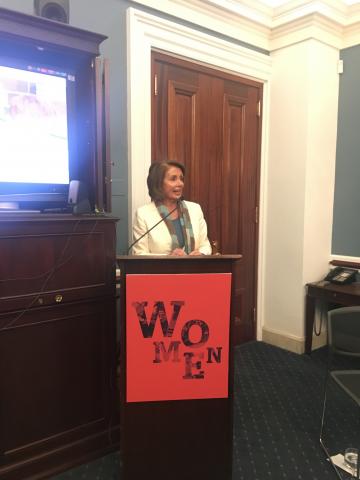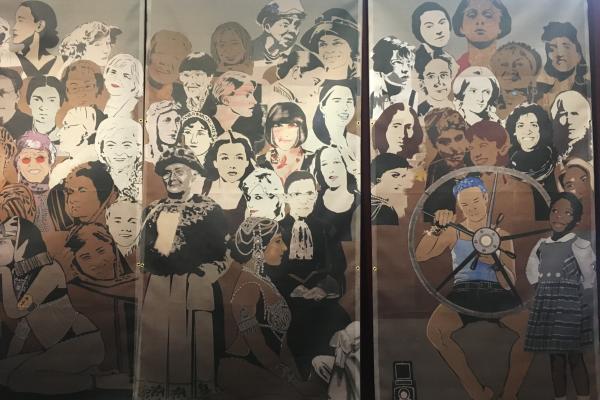In mid-November, a congressional committee unveiled a bipartisan report recommending the construction of an American Women’s History Museum on the National Mall. But in the wake of the 2016 election, the museum’s future is unclear.
Democratic Rep. Carolyn Maloney, a co-sponsor of the bill that created the commission and who has pushed for the creation of a women’s history museum for over a decade, represents New York’s 12th district, which includes much of Manhattan — including Trump Tower.
“The new president-elect, one thing I know about him, he likes to build things,” Maloney said. “I can’t think of anything more important than to build a women’s museum on the Mall that will show America’s respect for women and for the significant contributions that American women have made to our country and the world.”
Rep. Jackie Speier, D-Calif., who has also co-sponsored legislation on the museum, said building the museum is especially important now.
img_2646.jpg

“Women right now in this country are very concerned, and they will want to do things to make certain that the country is representative of women and that it will not be discriminatory against women,” Speier said. “There’s a great deal of concern about reproductive health, whether women are going to have access to contraceptives, and whether if the president-elect has his way, he reverses Roe vs. Wade.”
The report has been a long time coming. The National Women’s History Museum, a private nonprofit founded in 1996, has spent the past decade lobbying for the museum. Museum officials formed an advisory council of women’s history scholars, including Georgetown University’s Bonnie Morris and the University of Maryland’s Sonya Michel, in 2011. But quickly, many of the historians became concerned about the content created by the organization.
“We were concerned about the quality of work they were putting up on their website and felt they weren’t being professional, but we were also deeply worried about the kind of history they were presenting,” Michel said. “They weren’t really reflecting the diversity of women’s history. It was a white women’s hall of fame.”
Morris remembers the fight as between those on the left hoping for a radical feminist museum that “wasn’t just first ladies’ ball gowns,” those on the right hoping to avoid glorifying the feminist movement and respect pro-life perspectives, and those in the middle attempting to appease everyone and create a museum plan that would get bipartisan support.
“The history of American women and the history of American feminism are two different things,” Morris said. “If you only wanted a museum that tells the history of the feminist movement, you wouldn’t get support from a conservative Congress. If you push for a history of female achievement and make the point subtly that it wouldn’t have been possible without the feminist movement, then you get both.”
Frustration within the council grew, and eventually it was disbanded.
In late 2014 Maloney’s legislation to authorize a commission to study the need for the museum passed. The commission, divided evenly between Republicans and Democrats, consulted an array scholars of women’s history who seemed pleased with what the committee concluded.
But getting approval for the museum legislation from two Republican-controlled chambers of Congress and having it signed into law by Trump is hardly a sure thing.
“I don’t know if the idea of a women’s history museum on the Mall will be a priority right after an anti-Trump protest of women on the Mall,” Morris said, referring to the Women’s March on Washington scheduled for the day after inauguration.
Even if the museum is built over the course of 10 years, predominantly funded by private funders as proposed, the fight about what to include in it will undoubtedly continue. Morris and Michel hope that issues like equal pay, women in the LGBTQ movement, and abortion will be included in the museum, even if they are controversial.
“I don’t think museums should be so didactic that there’s only one message presented,” Michel said. “We should present all sides, and make it more interactive so it isn’t just presenting an object and telling people what they are supposed to think about it.”
Rep. Marsha Blackburn, R-Tenn., who was a co-sponsor of the legislation creating the commission, couldn’t attend the event announcing the commission’s conclusions. She was busy working with the Trump transition team.
Got something to say about what you're reading? We value your feedback!

